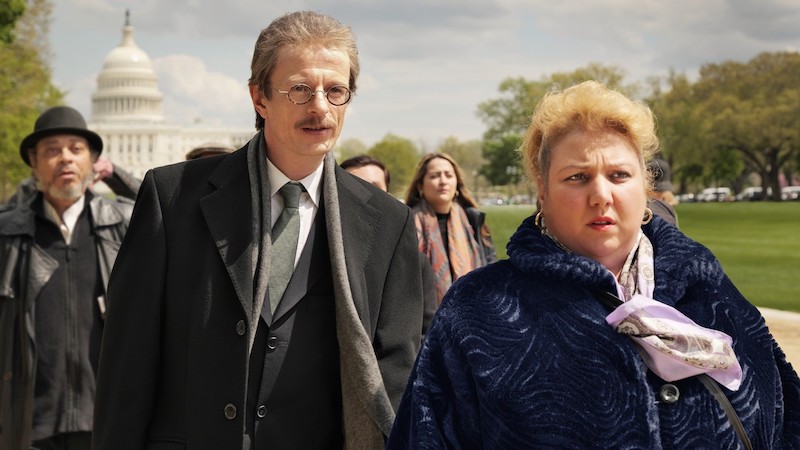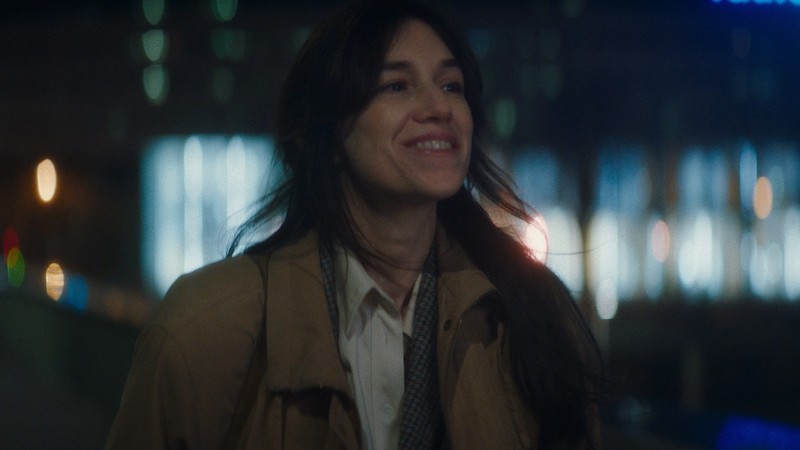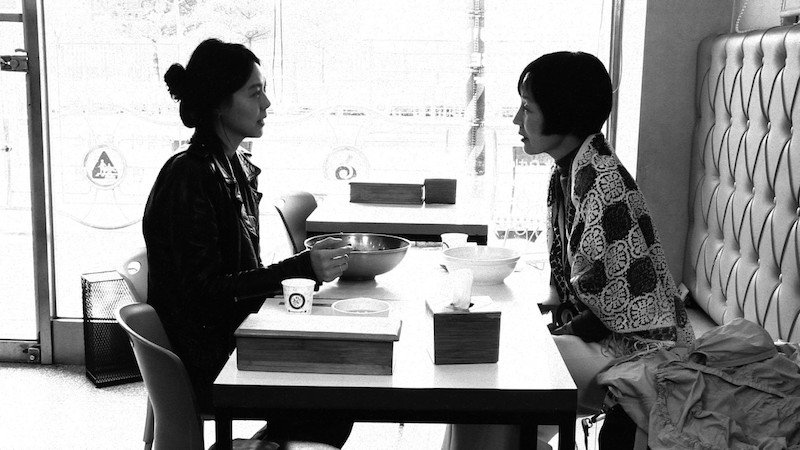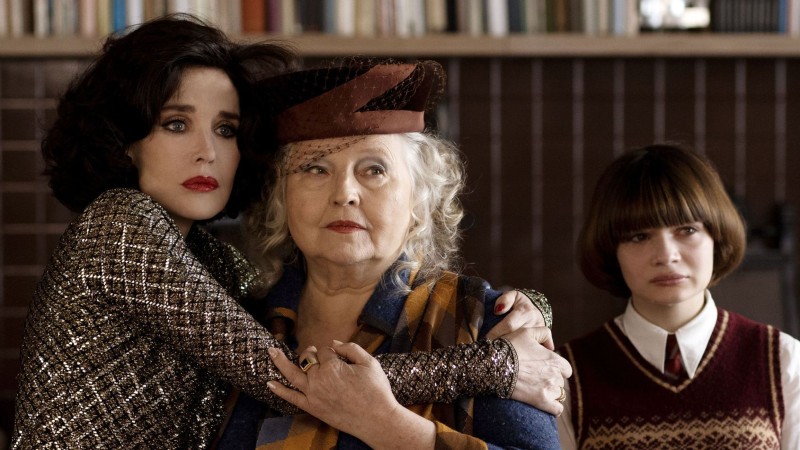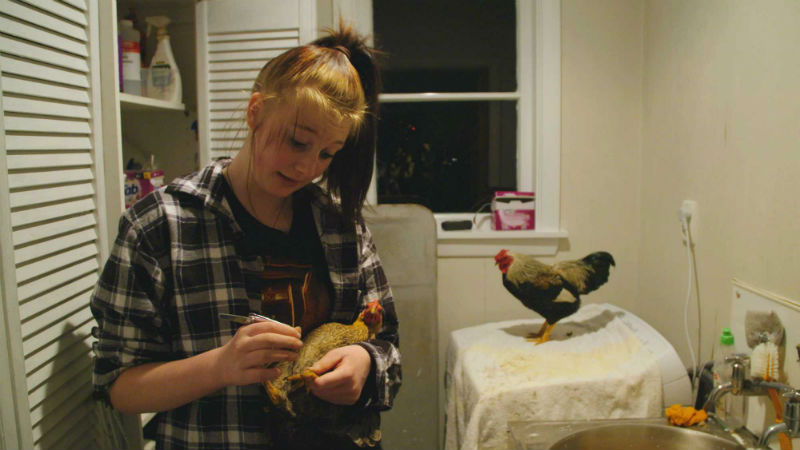QUICK SNAP: LIVE FROM LOCARNO
Adolf Hitler. Benito Mussolini. Winston Churchill. Joseph Stalin. Between them they were responsible for the deaths of over 100 million people, before, during and after WW2. Great men in the traditional sense, casting a wide influence over Europe that persists until this day. If you put them all through a live-action Dall-E generator and had them talk to one another, you might have something approximating Fairytale, the latest film from legendary Russian director Alexander Sokurov.
This hybrid live-action/animated film — somewhere between the compositing tricks of Forrest Gump (Robert Zemeckis, 1994) and Zelig (Woody Allen, 1983), the uncanny valley of the deepfake WOMBO app and the foggy mysticism of Hedgehog in the Fog (Yuri Norstein, 1975) — is a strange, philosophical wandering through the minds of the 20th century’s most influential and evil men. Equal parts fascinating and beguiling, frustrating and ponderous, it shows Sokurov is still a director unafraid to innovate while moving into the late period of his career.
It begins with Stalin waking up in a black-and-white nether-zone, next to none other than Jesus Christ himself. God’s own son lies in a somnambulant posture, unable to get up. One suspects he took a look at the world after the Second World War and believed a long lie-down was necessary. Stalin instantly tells him to get up, making a nebulous comparison between Christianity and communism. It’s the first of many one-line statements in a film jam-packed with odd aphorisms. Don’t expect genuine insight, but a sustained mood — a universe that is uncanny and provocative, asking the viewer to bring their own feelings to the world Sokurov creates.
Using archive footage of these dictators and placing them in a composited landscape that feels equal parts William Blake and Hieronymus Bosch, we are treated to a world that moves in endless circles. Dante and the opening lines of the Inferno are invoked — as well as the deep dark wood his protagonist finds himself in — but his Purgatorio feels like the bigger influence here, a world where forward or backward movement seems impossible, characters locked in an endless stasis. These men wait and wait for God to provide judgement, seeing if they finally make it into heaven or hell. They make their case in oblique ways, often talking past each other and wearing different uniforms, realising the kind of odd “what-if” situation you never knew you wanted.
The inclusion of Winston Churchill might be puzzling to certain Brits, due to the fact that he helped win the war and is considered a legend by most in the nation, but when you actually reckon with his vile white supremacism — condemned at the time by members of his own party! — and the legacy of the Bengali famine, his inclusion in the film amongst these tyrants does feel warranted. Either way, his British stoicism and endless pining for the Queen — remarkably still alive — provide a neat and humorous counterpoint to the ramblings of his fascist and communist contemporaries. Interestingly, no Americans feature, Sokurov keeping his perspective fully on the European perspective.
Conceived before the Russian invasion of Ukraine, there are echoes of modern times throughout. Boris Johnson failed to capture Churchill’s brio, while Vladimir Putin is bringing back the Stalinist era. There is always a problem when the man becomes a symbol of the nation itself, and pursues more and more depraved imperialist goals in the pursuit of endless power. It’s interesting that the masses themselves never seem to fully come into view, morphing together into shadows and waves and making lots of noise while lacking definition. It shows that dictatorial ambition, regardless of political affiliation, only works by seeing the people as a mass, never as individuals, despite the need for a god-like figurehead at the top. But there is only one God, and he has the power to decide everyone’s ultimate fate.
Rejected by Cannes for misguided political reasons — after all, simply being Russian is not a crime — Fairytale is too bizarre to resonate with viewers around the world, but for those interested in WW2 history and the legacy of great men, as well as films that pursue unique cinematic forms, this is certainly a film worth checking out.
Fairytale plays in the Concorso Internazionale as part of the Locarno Film Festival, running from 3-13th August.









